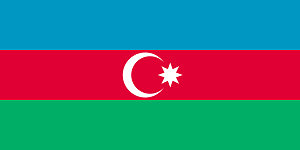On May 28, Azerbaijani people solemnly celebrate the National Holiday – The Republic Day. 103 years ago, on May 28, 1918, the first democratic republic in the Muslim East was proclaimed in Azerbaijan.
Although short-lived, it achieved a huge progress in many spheres, including economic, political and democratic reforms. The Azerbaijan Democratic Republic ensured all its citizens’ full civil and political rights, regardless of ethnic origin, religion, social class, profession or gender.
The Azerbaijan Democratic Republic created broad opportunities for the independent development of all nationalities living in its territory. It laid down the foundation for many best practices, which were quite outstanding for that period. For instance, the young Republic was one of the first countries in the world introducing the right of suffrage for women in 1919.
Many Azerbaijani youngsters were sent abroad by the Government to study in leading world universities. The Azerbaijan Democratic Republic established diplomatic relations with several countries and was de-facto recognized by the Versailles Peace Conference.
The contemporary Republic of Azerbaijan is the successor of the Azerbaijan Democratic Republic. Azerbaijan regained its independence in 1991 and immediately found itself in a conflict with neighboring Armenia, which has been keeping under occupation one-fifth of its territories until November 2020.
This period of political and economic turmoil was overcome thanks to the wise policy of the National Leader of Azerbaijan – Heydar Aliyev, who played a crucial role in building modern Azerbaijan’s statehood.
Today, as a result of the successful domestic and foreign policy carried out by President Ilham Aliyev, Azerbaijan develops very rapidly and strengthens its position in international arena. Being an open and tolerant country, Azerbaijan is also known as a global centre for intercultural dialogue and cooperation, regularly bringing together political, cultural and religious leaders from around the world.
Even if Azerbaijan’s independence was shortly interrupted when Azerbaijan became a part of the Soviet Union, the rebirth of the statehood achieved huge in economic, political, democratic spheres, among others. This was because the country had ensured Azerbaijanis’ full civil and political rights, regardless of ethnic origin, religious views, social classes, profession or even gender, which is still a very serious issue in many countries after more than a century, according to Dmitri Panin, Charge d’Affairs of Embassy of the Republic of Azerbaijan in Addis Ababa.
Although Ethio-Azerbaijani relations go back to 12th century, Azerbaijan renewed its diplomatic relations with Ethiopia on November 2, 1992, immediately after regaining independence.
In 2015 Azerbaijan opened its Embassy here in political capital of Africa – Addis Ababa, demonstrating Azerbaijan’s rapidly developing and strengthened position internationally.
Its successful domestic and foreign policy carried out by President Ilham Aliyev enabled the country to consolidate its economic achievements of the last three decades and to liberate its territories occupied for close to 30 years by Armenia following the 44 days war between the two countries.

